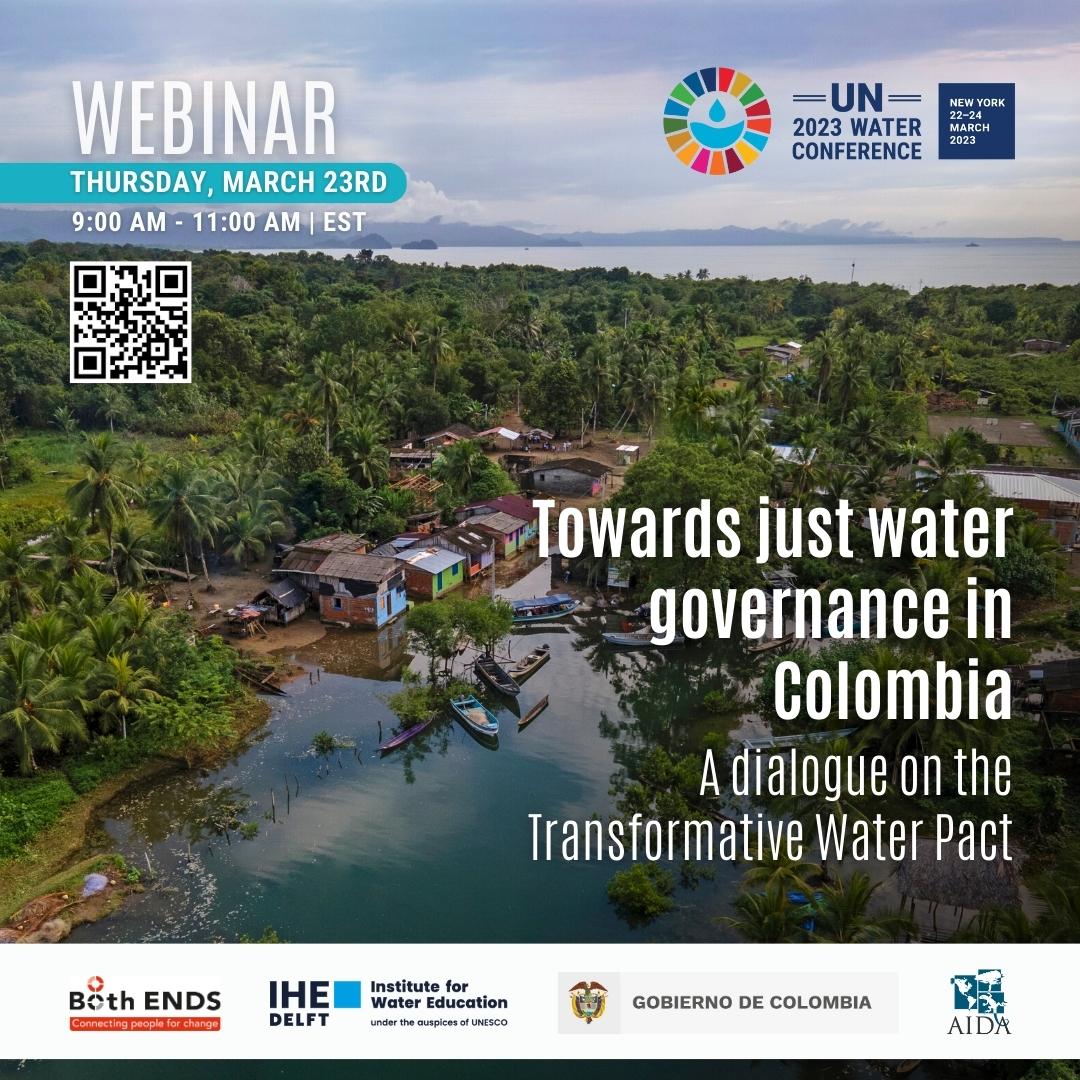
This event will present The Transformative Water Pact (TWP), an innovative framework for water governance that has been developed by environmental justice experts from around the world. The TWP will serve as a starting point for dialogue between representatives of the government of Colombia, academia, regional and international NGOs in relation to Colombia's current ambitions in multi-scalar water governance.


Academics and civil society representatives from around the world came together to articulate an alternative vision and framework for water governance, in the run-up to the UN Water Conference 2023 in New York. The Transformative Water Pact was developed in response to the continued exploitation of nature, neglect of human rights and the extreme power-imbalances that characterize contemporary water governance throughout the…

Both ENDS and the Land Portal Foundation invite you to the first webinar in the Whose Land? - Inclusive Pathways to Land Governance series, which aims to provide a platform for stakeholders engaged in land governance to exchange on the importance of inclusivity and meaningful participation of all…

Water is literally life, the lifeblood of ecosystems, of nature, of humans. However, in many places the distribution and use of water is unjust and unsustainable. Water management is generally focused on short-term economic interests, on maximizing the profit of a well-connected few at the expense of people and nature. This dominant view of water and water management has its origins in the European industrial revolution, which became the global norm through colonialism and globalization. But according to Melvin van der Veen and Murtah Shannon, water experts at Both ENDS, this view will have to give way to equitable, sustainable and inclusive water management. Both ENDS cooperates with and supports communities and…

From May 9 to 20, the 15th Conference of the UN Convention to Combat Desertification, Land Degradation and Drought (UNCCD COP15) will take place in Abidjan, the capital of Côte d'Ivoire. Governments, policymakers, civil society organisations and scientists from countries all over the world will discuss the problems around drought, land degradation and desertification that are increasing. Colleagues Nathalie van Haren and Stefan Schüller will be there, as will a large number of representatives of organisations with which Both ENDS has been working together for decades. But what is the purpose of…

The Dutch government and Dutch businesses spend a lot of money on food production in developing countries. But, according to Karin van Boxtel…

"Water is life, water is food" is this year's theme for World Food Day. Our partners around the world know all too well that this is a very true sentence. To celebrate World Food Day 2023 this October 16th, we'd like to show a few examples of how our partners fight for the right to water and this way…